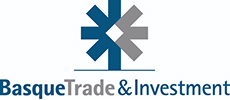South Korea
South Korea is an interesting market for Basque companies due to its sophisticated economy, its high level of technology and its strategic position in Asia. This country is a leader in sectors such as electronics, automotive industry, shipbuilding and renewable energy, areas where Basque companies are in an excellent international position. Furthermore, the Free Trade Treaty between the European Union and South Korea facilitates access to this market, by lowering customs tariffs and encouraging exports and investments. Its strong business infrastructure and culture based on quality and efficiency make South Korea a key partner to expand the global presence of Basque industry.
The Basque Country, gateway to Europe
South Korea is in a prominent position in the global economy thanks to its fast development, high competitiveness and innovation capacity. It is the world’s tenth largest economy by nominal GDP and a world leader in sectors including technology, electronics, automotive industry and shipbuilding. South Korean companies such as Samsung, Hyundai and LG are international benchmarks, which reflects their ability to compete on global markets. Furthermore, South Korea is known for the importance it gives to education, research and development, which drives sustainable economic growth over time and its capacity for resilience. Its geopolitical influence is also significant, as it acts as a bridge between the economies of Asia and the rest of the world, thanks to its strategic partnerships with key players such as the United States and the European Union.
Sang ah Yun
Director of Basque Trade & Investment South Korea
BASQUE TRADE & INVESTMENT SOUTH KOREA
* Office hours:
Monday to Thursday: 7.30 a.m. to 4.00 p.m.
Fridays: 8.00 a.m. to 1.00 p.m.
